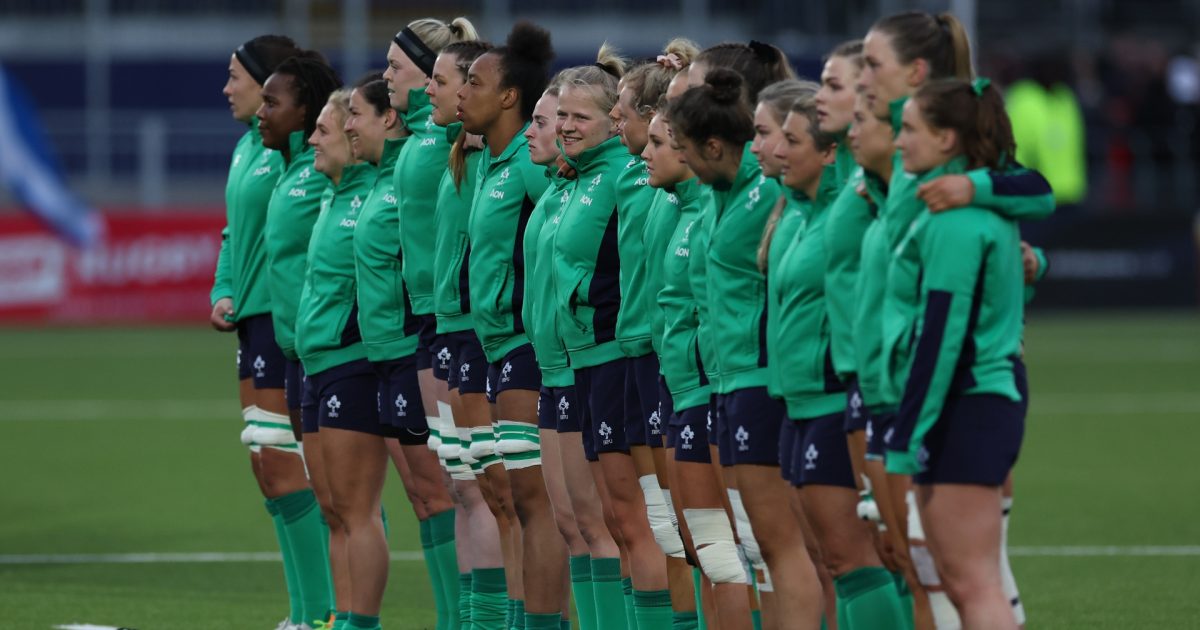Première victoire pour l'Irlande

Il n’y a pas réellement eu de match, hier à Cork, entre les Irlandaises et les Galloises pour la 2e rencontre de la 3e journée du Tournoi des Six Nations. L’Irlande remporte sa première victoire en huit matchs dans la compétition (36-5), et offre un joli cadeau de bienvenue à son nouveau sélectionneur Scott Bemand.
Comme un peu plus tôt dans l’après-midi au terme d’Écosse – Angleterre (0-46), la rencontre a été à sens unique. Si l’on s’attendait à une nouvelle démonstration des Red Roses, on espérait un duel un peu plus équilibré entre les deux équipes occupant le bas du classement.
La rencontre, émaillée de petites fautes de main polluant la continuité du jeu ou de coups de pied mal ajustés annihilant les efforts collectifs, a tourné au cavalier seul des locales.
Bonus offensif assuré dès l’entame de deuxième période, cinq essais au total, cinq points encaissés : l’après-midi a été douce sous le soleil de Cork, malgré le vent, pour l’Irlande, qui recherchait une victoire depuis avril 2022.
Portées par une Aoife Wafer auteure de quelques percées tranchantes et une Dannah O’Brien impériale face aux perches (5/6,), les Irlandaises ont varié leur jeu pour engranger un succès précieux pour la confiance, à l’image de leurs essais : Wafer tout en puissance (14e), Jones en conclusion d’un bon ballon porté (28e), Eve Higgins derrière une touche volée (20e), Beibhinn Parsons en pure ailière (60e).
Et les Galloises dans tout ça ? Condamnées à défendre toute la rencontre, elles ont eu bien du mal à exister offensivement. Leurs difficultés en touche et en sortie de camp les ont acculées dans le camp.
Elles n’en sont jamais sorties, hormis durant les vingt dernières minutes, quand le score était acquis et les Irlandaises relâchèrent un peu la pression.
Elles ont ainsi réussi à sauver l’honneur après un long arbitrage vidéo, récompensant la percée de l’ailière Carys Cox, relayée par la remplaçante Gwennan Hopkins (66e), auteure d’une bonne entrée en 3e ligne.
Le pays de Galles a même cru en inscrire un deuxième, mais Carys Cox était devant quand elle a reçu la passe de Sian Jones (77e).
Un match définitivement à oublier pour les Galloises, tandis que les Irlandaises ont trouvé matière à valider le travail fourni, en attendant les deux dernières journées du Tournoi.


























